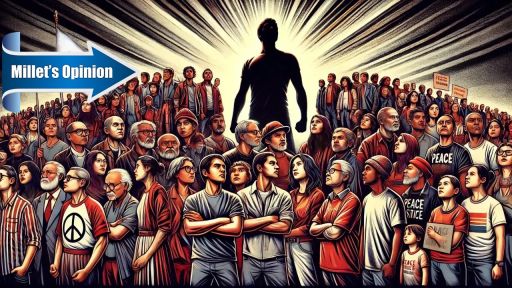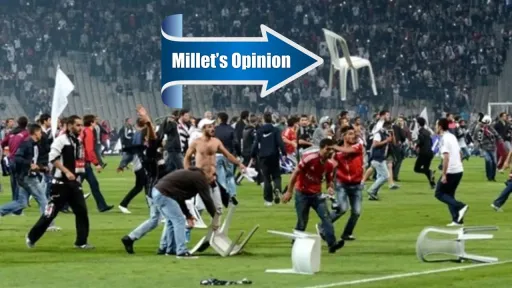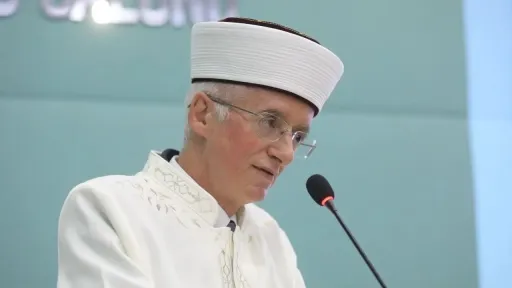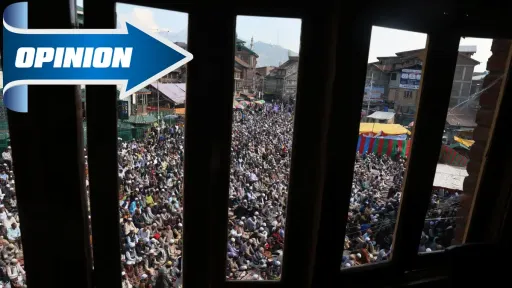Contradictory and inconsistent statements from the appointed Mufti's Deputy in Greece

A recent interview with Cihat Halil, the appointed Deputy Mufti of Gümülcine, published on the news website kontranews.gr, has raised significant concerns due to his contradictory and inconsistent statements, particularly regarding issues of religion and ethnic identity.
In his interview with journalist Tasos Fekas, Halil made perplexing remarks about whether people could identify with different ethnic groups in a religious context. His conflicting statements about these issues have raised both logical and Islamic questions.
One of the most notable remarks made by Halil was when he said, "Problems arise when we divide people according to their ethnic backgrounds in our religion." He then went on to state that Prophet Muhammad (PBUH) considered such distinctions to be issues from the pre-Islamic era.
However, the Greek newspaper picked up on these comments and headlined their article: “Clear Message from the Mufti of Gümülcine to Ankara: No Turkish Minority in Thrace.” Despite Halil never stating such a claim, the journalist manipulated the content to align with this headline.
This issue is not new, as nationalist circles in Greece and the official state policy have consistently denied the existence of a Turkish minority in Western Thrace. Some factions continue to spread the false narrative of "no Turkish minority in Western Thrace" through media channels, perpetuating anti-Turkish sentiments within the Greek public. These groups often use figures like Cihat Halil, who holds a position within the state-appointed Muslim leadership, to advance their agenda.
During the interview, the journalist also asked: “Recently, there have been statements about special meetings concerning Western Thrace by Turkish Foreign Minister Hakan Fidan. Do you have regular communication with Greek authorities on this matter?”
Halil responded: “No, as a religious authority, we do not engage in political matters. However, when we divide people based on their ethnic backgrounds, problems arise. Prophet Muhammad saw these issues as problems from the pre-Islamic era. In the Prophet’s family, there were Arabs, Persians, Africans, and Jews who had accepted Islam. There was no discrimination.”
Halil’s comments seem contradictory. On one hand, he states that Muslims should not identify themselves by ethnic background, but then suggests that within the Islamic umbrella, people from various ethnic backgrounds can coexist, such as Greeks, Albanians, Bulgarians, and Turks. In the same breath, he dismisses the idea of ethnicity-based identities in Islam, yet indirectly acknowledges its presence under the religion.
This inconsistency raises serious questions about Halil’s understanding of Islamic teachings. The Quran is clear that different ethnic groups exist under Islam, and identifying with one’s ethnicity does not lead to division or discrimination but rather promotes multiculturalism. People should respect each other regardless of their ethnicity, and such identification is not inherently sinful or divisive in Islamic doctrine. The Quran itself emphasizes in Surah Al-Hujurat (49:13) that mankind was created in different tribes and nations not for division but for mutual recognition and understanding: "O mankind, indeed We have created you from male and female and made you peoples and tribes that you may know one another. Indeed, the most noble of you in the sight of Allah is the most righteous of you. Indeed, Allah is Knowing and Acquainted."
It is clear from the Quran that racism and ethnic division have no place in Islam. In fact, it is a call for mutual understanding among diverse communities.
Halil’s statements also appear inconsistent in relation to the situation in Western Thrace. While he claims there is no ethnic discrimination based on identity in the region, it remains evident that the Turkish minority, particularly those who identify as "Turkish," continue to face denial of their ethnic identity by state authorities. The existence of ethnic discrimination remains an issue, one that Halil’s position seems to inadvertently support.
Finally, Halil could have shown more courage by clarifying or refuting any misinterpretations made by the journalist, particularly regarding the claim that he stated "There is no Turkish minority in Western Thrace." A simple clarification could have prevented further confusion.
A Muslim is required to speak out against injustice and deny any false attributions made to them. Silence in the face of injustice contradicts the principles of faith, and denying lies is an obligation in Islam.
For more information, you can read the full interview of Cihat Halil on kontranews.gr




